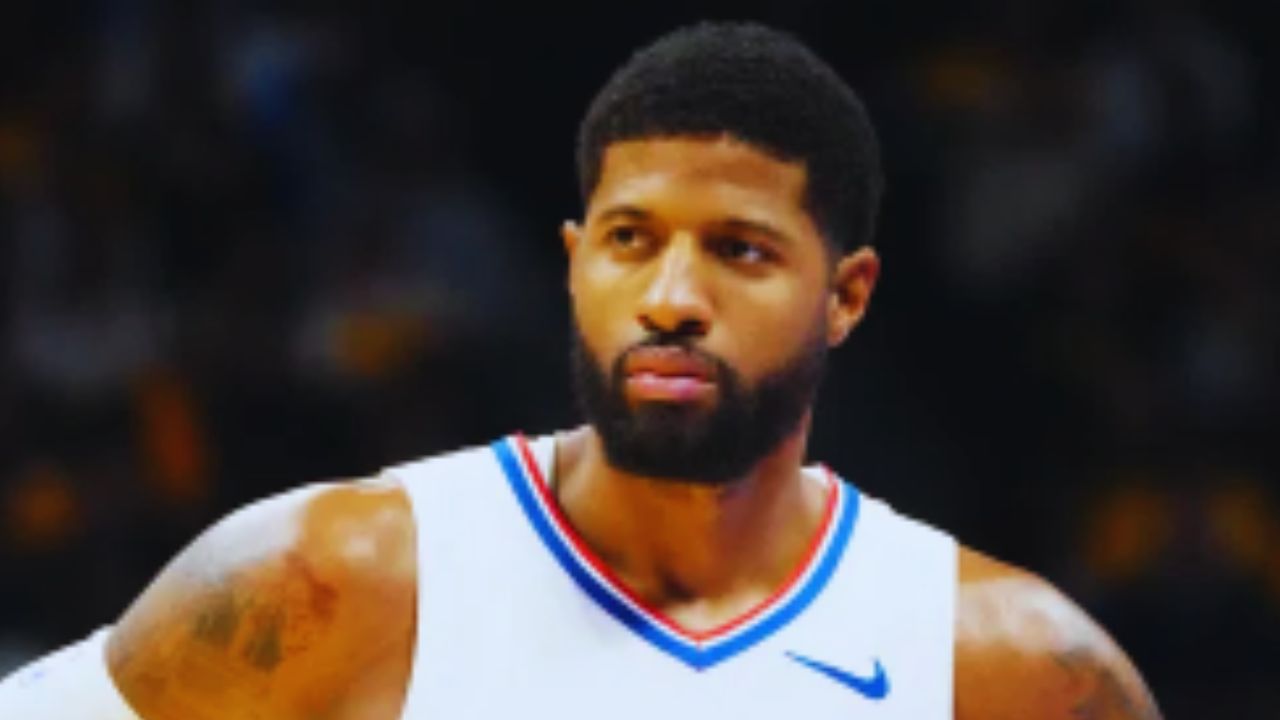In the constantly changing environment of the NBA, trades have the power to either elevate or ruin a team’s destiny. The most recent development in this storyline centers around Paul George, an eight-time NBA All-Star who caused a buzz with his off-season move to Philadelphia, particularly due to his contentious exit from the Los Angeles Clippers. Recently, things heated up in this story when George, 34, publicly accused the Clippers of being disrespectful, sparking even more controversy with his father’s emotional reaction. However, just before things could get out of hand, former NFL star Shannon Sharpe intervened, underscoring the consequences of George’s trade history.
A Move that Stung: Paul George’s Father Speaks Out
Paul George’s transition to Philadelphia may have been just another headline for some, but for the George family, it was a deeply personal affair. In a recent episode of the “Podcast P with Paul George,” the NBA star’s father, Paul George Sr., shared his raw feelings about his son’s move. “It was hurting… I feel like they stabbed us in the back,” he confessed, clearly still reeling from the Clippers’ decision. He further emphasized that his son had done “a lot for the team” during his time in Los Angeles, highlighting the emotional toll the trade took on their family.
The internet, as is common, swiftly embraced George Sr.’s remarks, sparking discussions and arguments on various social media platforms. Fans shared their opinions, with some showing empathy towards the George family and others raising doubts about the actual significance of Paul George’s time with the Clippers.
During the unfolding of the drama, Shannon Sharpe, a former NFL star turned popular sports analyst, felt compelled to give his input. On “Night Cap,” Sharpe discussed the controversy with Chad Johnson, focusing on the broader impact of Paul George’s previous trade choices rather than defending the Clippers or empathizing with the Georges.
Sharpe brought the audience back to the significant summer of 2019 for the Clippers. After winning the championship with the Toronto Raptors, Kawhi Leonard was on top of the NBA world. Bring Paul George to Los Angeles, no matter the cost. And the cost was steep.
The aftermath of 2019: An exchange that rocked the Clippers
Sharpe commented on how difficult it is to consider the sacrifices made to acquire him, his voice filled with the burden of looking back. Nevertheless, that was not all. The Clippers traded away many draft picks, such as first-round picks and pick swaps, putting their future in jeopardy to pair George with Leonard.

Sharpe’s remarks served as a clear indication of the frequently ignored aspect of high-profile trades: their lasting effects on a team’s lineup and future potential. Even though the Clippers may have acquired a star player in George, they missed out on the chance to develop a young, enduring foundation with Gilgeous-Alexander. Now that George has left Los Angeles, the lingering question remains: Was the trade worth it?
Questioning Paul George’s Impact on the NBA: Examining His Legacy
The NBA will continue to debate Paul George’s legacy for many years. He has been a highly skilled player and made appearances in eight All-Star games, delivering numerous remarkable performances. However, his professional journey has been characterized by a succession of controversial decisions and what some may consider untapped capabilities. The ongoing debate has been further fueled by recent remarks from George and his father, as well as Sharpe’s critical analysis.
While the NBA community analyzes this recent development, it’s evident that Paul George’s story is still ongoing. It is yet to be seen if relocating to Philadelphia will bring about a successful new chapter in his career, or if it will serve as another example of the risks involved in high-stakes trades.
The Emotional Consequences: Loved ones and supporters caught in the middle
Despite being primarily focused on business, the NBA trades and transactions involve a human element that is often overlooked. Paul George Sr. is reminded by his son leaving Los Angeles of the emotional impact, showing that player decisions have an effect beyond the court. They resonate within families, fans, and communities, creating lasting impacts that extend well beyond the sport.
Ultimately, this tale serves as proof of the intricate and sometimes surprising characteristics of professional athletics. It is a world where loyalty is challenged, where business choices can seem like personal treacheries, and where the real price of a deal may only be realized many years afterward.


